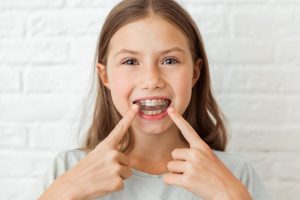 If someone has ever asked you, “Are you trying to catch flies?” in reference to leaving your mouth open, you may be a mouth breather. Of course, it is no one else’s business how you choose to acquire air, but if you are mouth breathing, there is much more to it!
If someone has ever asked you, “Are you trying to catch flies?” in reference to leaving your mouth open, you may be a mouth breather. Of course, it is no one else’s business how you choose to acquire air, but if you are mouth breathing, there is much more to it!
Our lives depend on this vital movement of air in and out of our bodies and the nourishing oxygen it provides. With most normal healthy respiration, you inhale air into your nose. Next, the air migrates down your windpipe to your lungs and beyond, enabling this “life force” to feed your body’s organs and systems.
While you can undoubtedly intake air through your mouth, breathing predominantly through your mouth can cause health concerns, no matter whether you developed this route as an adult or were born this way.
Signs You Are a Mouth Breather
Breathing shouldn’t be a chore. Ideally, you breathe in a steady, relaxed cadence and easily get the air your body requires to function. But, if you find that it takes effort to get air through your nose, check out these signs to see if you may be defaulting to mouth breathing instead:
- Bad breath
- Brain fog
- Dry mouth
- Hoarseness
- Snoring
- Headaches and fatigue upon awakening
If you experience any of these symptoms, it could indicate you aren’t getting ample, “quality” air. We recommend scheduling a dental appointment or visiting your doctor, who will conduct an exam to determine if you are mouth breathing and select the appropriate dental care or medical intervention. Here are a couple of things they will look for:
- Inadequate lip seal
- High narrow palate
- Forward open bite
- Gingivitis
- Gum disease
- Tooth decay
- Dry lips, mouth and gums
- Postural changes
- Dark circles beneath your eyes
- Elongated face shape
- Droopy eyes
- Narrowing of nostrils
- Narrow upper lip
To help validate this, your physician will conduct a breathing test, lip seal test, graded mirror test and/or water retention test. In the interim, think back. Were you scolded as a child for leaving your mouth open? If so, that was likely your first clue that something was amiss.
Why Do I Mouth Breathe?
Ok, so you are a mouth breather. It isn’t your fault! Partial or complete nasal obstructions due to enlarged adenoids and allergies are the likely cause of your tendency to breathe through your mouth. Genetic abnormalities, nasal polyps, sleep apnea or tumors are less common reasons, but shouldn’t be ruled out.
Why Nose Breathing Is Better For You
Sure, when you are hitting it hard at the gym or have a pesky cold with a stuffed up nose, you’ll take air any way you can. Temporary mouth breathing in these scenarios is perfectly fine and necessary!
But breathing through your nose has multiple advantages for your total health and safety over mouth breathing. Here are the beneficial roles nose breathing plays:
- Air purifier – The hairs in your nose act as filters, trapping debris and other harmful impurities.
- Multi-Tasking LifeSaver – It helps you eat and speak using your mouth while breathing through your nose. This ability is a survival technique that prevents choking by allowing you to keep breathing while you eat.
- Temperature Regulator – It serves up air to your lungs at an optimal temperature that is neither too hot nor too cold.
- Royal Smeller – Your olfactory nerves in your nose have the power to sense smells and can alert you to dangerous toxins and other substances in your immediate environment to help keep you safe.
How To Address Mouth Breathing
Should any of the above symptoms sound familiar, it is essential for your total health that you not put off addressing them. Your family dentist and doctor will work to treat the underlying causes of your mouth breathing to get you to breathe better through your nose.
Simply adding allergy medicine to your daily routine to help you deal with nose-plugging allergens and sinus issues may remedy this tendency. However, if mild to moderate sleep apnea is evident, our dental clinic team can provide a special night guard for snoring to help improve your airflow. Avoiding alcohol and certain sleep medications can also be quite beneficial. Special pillows and weight loss are also effective for some patients.
If severe sleep apnea is discovered, a CPAP machine may be prescribed. This surprisingly comfortable mask is attached to a small apparatus that blows air into your nose and mouth to counteract the loss of air that occurs when your upper airway tissues collapse.
For a forward open bite, Invisalign may be viable to help shift your teeth. If we observe gum disease, tooth decay or dry mouth and gums, we will recommend the appropriate oral hygiene and dental care to get you back to the healthy mouth you deserve.
Here are some additional helpful tips to see if you can retrain your breathing pattern:
- Blow your nose regularly and keep it clean
- Practice consciously breathing through your nose
- Try stress reduction to help keep you from gasping for air and drying out your mouth.
- Prop your head up with a larger pillow while you sleep
- Exercise to improve your body’s respiratory system



